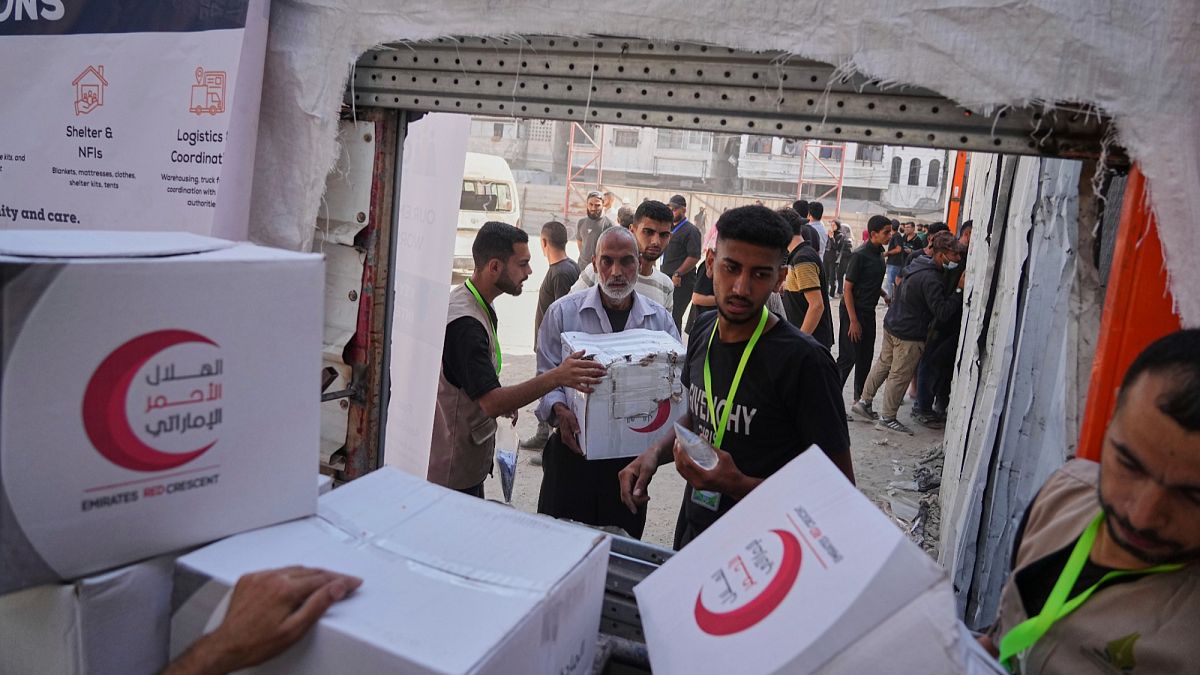

The world witnessed a series of events during this week that brought both challenges and a need for reflection on ongoing global conflicts and humanitarian crises. Various regions faced escalating tensions, underscored by calls for peace and the need for international response.
In the Middle East, a tragic incident unfolded in southern Gaza where a food distribution site operated by the Gaza Humanitarian Foundation in cooperation with international aid efforts experienced a chaotic surge. This resulted in the unfortunate loss of at least 20 lives as people sought essential supplies. Eyewitnesses and health authorities reported scenes of distress, emphasizing the urgent need for calm and coordinated humanitarian efforts in the region.
Meanwhile, tensions flared in Syria with the Israeli military launching airstrikes in response to violence against the Druze community. The strikes targeted key compounds, resulting in injuries and highlighting ongoing sectarian challenges in the war-torn country. This development was part of a broader pattern, as Israel also conducted operations in Lebanon and Syria in reaction to perceived threats, indicating a complex web of security concerns in the region.
Further stressing the Middle East’s volatility, the Houthis in Yemen continued to attract international scrutiny. A report revealed that factions linked to the group were leveraging social media platforms to sell arms, some of which were of significant international interest. This highlights the challenges global companies face in moderating content that can further exacerbate conflicts.
Elsewhere, the specter of conflict shadowed Eastern Europe as fresh concerns arose over Russia’s military activities against Ukraine. Overnight attacks targeted multiple Ukrainian cities, pressuring the region amidst international diplomatic efforts urging peace. Concurrently, a deliberate drone strike on a Polish factory in Ukraine’s Vinnytsia raised alarms, injuring workers and drawing a swift response from Polish authorities seeking accountability.
The ramifications of ongoing conflict were also evident in Iraq, where drone strikes targeted oil fields in the Kurdistan region. While these strikes did not result in casualties, they underscore the persistent state of insecurity affecting economic assets essential to regional stability and prosperity.
A somber account from Africa echoes these themes of violence and survival. In Sudan, the Rapid Support Forces (RSF) have been implicated in grave attacks in North Kordofan, reportedly leading to nearly 300 fatalities. The RSF’s actions in these village raids bring attention to the civil war that has continued to ravage the country since 2023, underscoring the urgent necessity for international humanitarian intervention and peace-building measures.
As these events unfold, they serve as a poignant reminder of the intertwining complexities of humanitarian needs, security concerns, and the pursuit of peace in conflict-affected regions. It is a call for the global community to engage more deeply with strategies that promote dialogue, provide aid, and support those caught in the crossfire of geopolitical disputes. Through careful coordination and compassionate response, there is hope that pain can be replaced with progress and peace in these troubled territories.
Source: {link}
